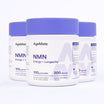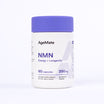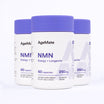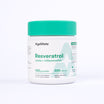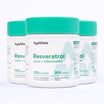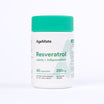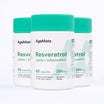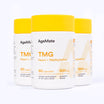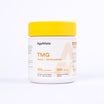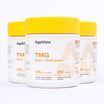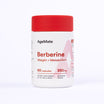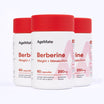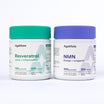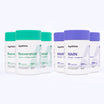Nicotinamide mononucleotide (NMN) and Nicotinamide Riboside (NR), precursors to the essential molecule NAD+ that supports energy production and cellular health. Among their explored benefits, one particularly intriguing area is their potential impact on eyesight.
As vision decline is commonly associated with aging, understanding whether NMN and NR can improve eyesight offers hope for maintaining visual health well into our later years. Let’s explore what current research suggests about NMN, NR, and their relationship with ocular health.
The Science Behind NMN and NR
Both NMN and NR play primary roles in boosting NAD+ levels in the body, which is crucial for numerous biochemical processes, including those vital for maintaining healthy, functioning cells in our eyes. Declining NAD+ levels with age can impair retinal cell function, contributing to conditions such as age-related macular degeneration (AMD).
Supplementing with NMN or NR can boost NAD+ levels, may enhance mitochondrial function, reduce oxidative stress, and support retinal health, potentially improving eyesight and slowing the progression of degenerative eye diseases.
Research Highlights: NMN, NR, and Vision
Recent studies have provided promising insights into the potential benefits of NMN and NR for eyesight:
Retinal Health: Research in animal models indicates that both NMN and NR supplementation may protect retinal cells from damage caused by aging or environmental factors. The retina, critical for converting light into neural signals, is vital for vision, and its deterioration leads to common age-related visual impairments (R, R).
Neuroprotection: NMN and NR have shown potential in protecting neurons, including those in the eye. This neuroprotective effect could help safeguard the optic nerve and other essential components of the eye against age-related damage, potentially preventing conditions like glaucoma (R).
Mitochondrial Function: By enhancing mitochondrial function in aging cells, NMN and NR could improve the energy supply to eye cells, supporting their health and functionality. This is particularly relevant for the high-energy demands of the retina (R).
Vision Enhancement in Age-Related Decline: Some preliminary studies suggest that NMN and NR supplementation could mitigate age-related vision decline, improving visual acuity and possibly slowing the progression of diseases like macular degeneration (R).
Caveats and Future Directions
While these findings are encouraging, it's crucial to note that much of the research on NMN, NR, and eyesight enhancement is still in the early stages, primarily conducted on animal models. The translation of these benefits to humans is not yet fully established, and more extensive clinical trials are needed to confirm the efficacy and safety of NMN and NR supplementation for improving eyesight.
Conclusion
The potential of NMN and NR to improve eyesight and protect against age-related visual decline is an exciting area of research that holds promise for enhancing quality of life as we age. As we await more definitive evidence from human studies, maintaining a healthy lifestyle, including a balanced diet rich in antioxidants, regular eye exams, and protecting eyes from excessive UV light, remains foundational for eye health. NMN and NR might soon join the arsenal of strategies for preserving vision, signalling a bright future for combating the visual impairments associated with aging.



